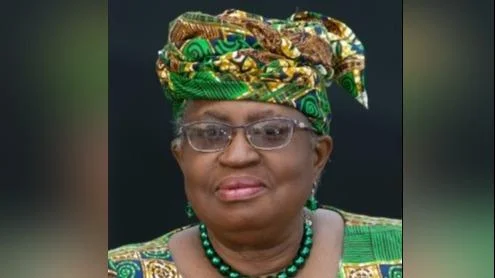The formal participation of the Gambia in the Informal Working Group on Trade and Gender (IWG) officially commenced on July 1, 2024. "This milestone reflects our commitment to promoting gender equality and empowering women," said Kemo Janka of the Gambia's Ministry of Trade, Industry, Regional Integration and Employment. "We recognize that trade is a powerful engine for growth and development. By integrating gender considerations into our trade policies, we can create a more inclusive and equitable economy," he added.
The IWG's co-chairs — Cabo Verde, El Salvador, and the United Kingdom — announced the publication of a new policy tool for inclusive trade on the World Trade Organization (WTO) website. Ambassador Delgado of Cabo Verde and Ambassador Manley of the United Kingdom, also speaking on behalf of co-chair Ambassador Benedetti of El Salvador, stated that this online database is a digital transformation of the Compendium of Financial Inclusion Initiatives for female entrepreneurs. The compendium was initially launched by the IWG and the MSMEs Working Group at the 13th Ministerial Conference in February 2024.
Designed to assist policymaking in inclusive trade, the database includes a search function allowing users to find specific initiatives using keywords. The compendium is available as an official document (INF/TGE/W/7/Rev.3 and INF/MSME/W/46/Rev.3) and can be downloaded in various formats from the WTO website.
The IWG co-chairs also provided updates on the International Prize for Gender Equality in Trade, initiated in March 2024 to recognize impactful gender-responsive trade policies implemented by WTO members and observer governments. Sixteen applications have been received from Latin America, South and East Asia, Africa, the Caribbean, Europe, and the Pacific. Winners will be informed soon with awards presented at the Public Forum in September.
Peru shared information about its first-ever Asia-Pacific Economic Cooperation (APEC) joint ministerial meeting held in May 2024 between ministers responsible for trade and those responsible for women's issues. This high-level dialogue addressed challenges faced by women in trade within Asia Pacific. Additionally, Peru hosted a Global Trade and Gender Arrangement (GTAGA) panel on women in trade alongside this APEC meeting.
Mexico took over GTAGA chairmanship in April 2024 and outlined its Work Plan focusing on collecting gender-disaggregated data, assessing impacts of gender chapters in trade agreements, supporting women-led MSMEs, and increasing GTAGA’s participation in international forums on economic inclusion.
Norway updated members about recent legislation aimed at increasing female representation on corporate boards to promote equality, diversity, innovation, and decision-making within businesses.
A panel discussion organized by Ecuador highlighted women's involvement in diplomacy with speakers emphasizing their roles in creating pathways to peace through economic empowerment. Daniela Garcia from Ecuador noted that women bring collaborative approaches essential for solving complex trade issues while Kemo Janka from Gambia emphasized women's role in prioritizing development agendas within trade policies ensuring broad benefits from trade.
The World Trade Institute (WTI) along with GQUAL Campaign Secretariat described their collaboration with CEDAW aimed at achieving equal representation of women across political, public economic spheres addressing systemic disparities promoting structural transformation.
According to WTO Secretariat data from 2022-23: 36% WTO ambassadors are female; only 19% ministers overseeing WTO affairs are women; while just 6% free/regional agreements notified include provisions supporting female leadership/access positions authority Anoush der Boghossian Head Trade Gender Office founded leads WTO Gender Research Hub noted some agreements non-binding commitments developing leadership networks fostering equal participation decision-making positions authority sharing experience training
The World Bank presented its new Gender Strategy 2024-2030 focusing key objectives ending gender-based violence enhancing human capital creating better jobs increasing ownership economic assets expanding access services advancing decision-making roles
WTO Secretariat updated members technical assistance activities reporting since 2018 trained652 government officials enhancing knowledge directly supporting policy-making developing tools hands-on exercises

